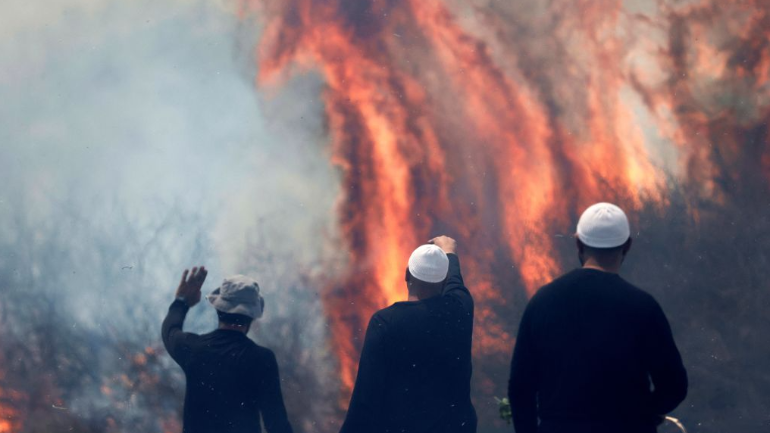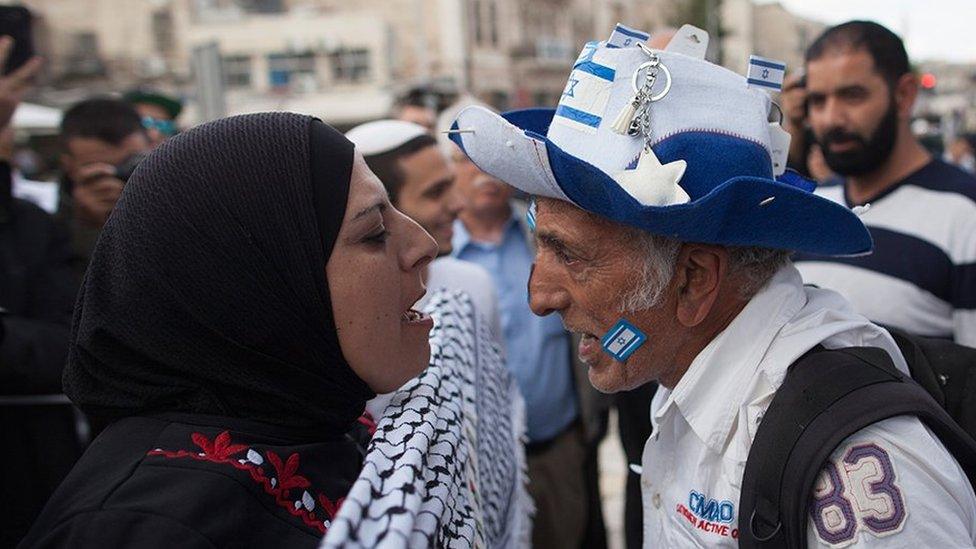'Constant gunshots' - Hull surgeon's Gaza experience
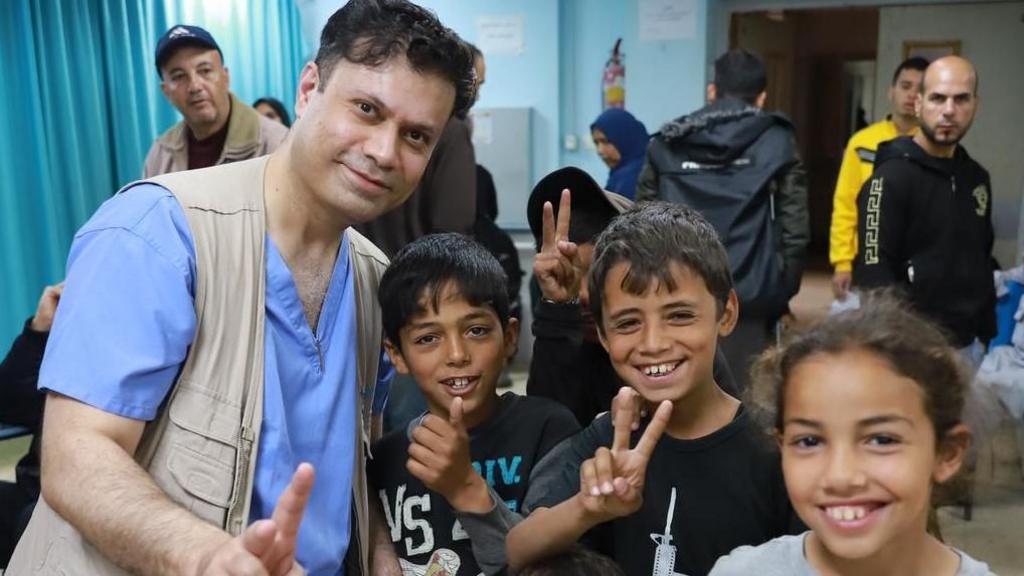
Dr Junaid Sultan, a vascular surgeon in Hull, volunteered at a hospital in Rafah
- Published
A surgeon who treated patients in Gaza has said he is planning to go back before Christmas after witnessing "unimaginable" suffering there.
Dr Junaid Sultan, a vascular surgeon in Hull, spent just under three weeks volunteering at the European Hospital in Rafah in April.
He said he treated hundreds of civilian patients, mostly women and children, with bullet wounds, burns and other injuries.
Israel and the Palestinian group Hamas have been at war since Hamas gunmen attacked Israel on 7 October, killing about 1,200 people, mainly civilians, and taking 251 hostages to Gaza.
At least 37,765 people have been killed in Gaza in the Israeli military offensive which followed, according to the territory’s Hamas-run health ministry.
Warning: This story contains graphic descriptions which may be distressing
"What I saw was just hunger, starvation, famine, suffering," said Dr Sultan.
"It was just like an Armageddon.
"Gaza has been made like a living hell for Gazans and essentially they are living like worse than animals.
"It was a very painful experience to see that - how humans can treat other humans like this.
"I would not have expected what would hit me."
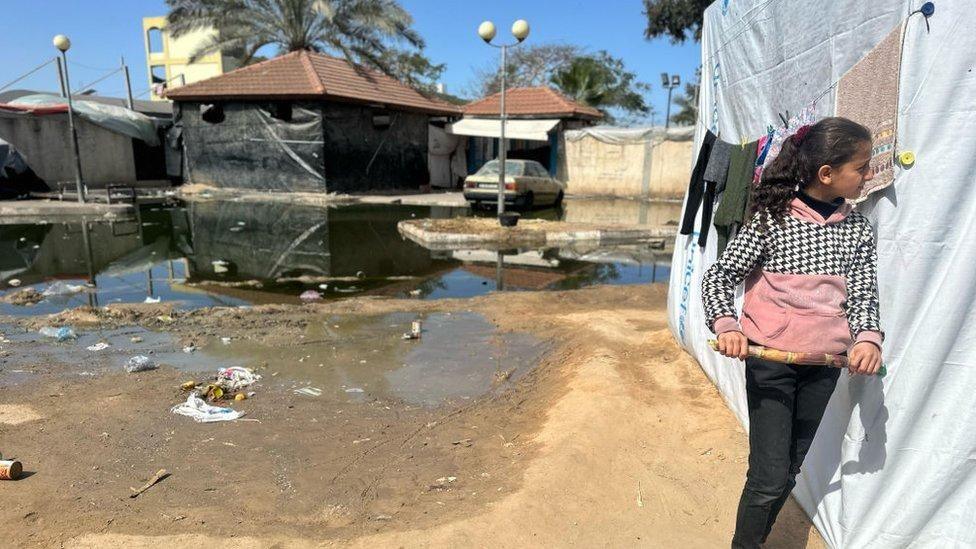
Conditions have become unsanitary, with sewage collecting near tents in hospital grounds
Dr Sultan travelled to Gaza with 14 other surgeons from the UK and the United States.
The team of medics were working with a US non-profit organisation called FAJR Scientific, under the umbrella of the World Health Organisation, to treat patients and take medical supplies to the conflict zone.
Although the UN and aid agencies have warned of looming famine, there is no evidence that it has occurred, a UN-backed report has said on Tuesday.
Dr Sultan said he was compelled to visit Gaza after an emotional appeal by a colleague in Scarborough whose father, a Gazan civilian, was "shot in the head" and was in desperate need of urgent life-saving treatment but died hours later.
Recalling the moment he landed in Gaza, the medic said: "The realisation that I'm actually in a war zone - it actually hit me when I was there.
"There was a curfew after five o'clock. There was no electricity, there was no water supply through the taps, and after five o'clock you are in pitch black. Drones are 24/7 over your head.
"You are constantly [under] surveillance and being watched, bombs are falling right and left even when you are in the safe zone. The sound of gunshots was just constant."
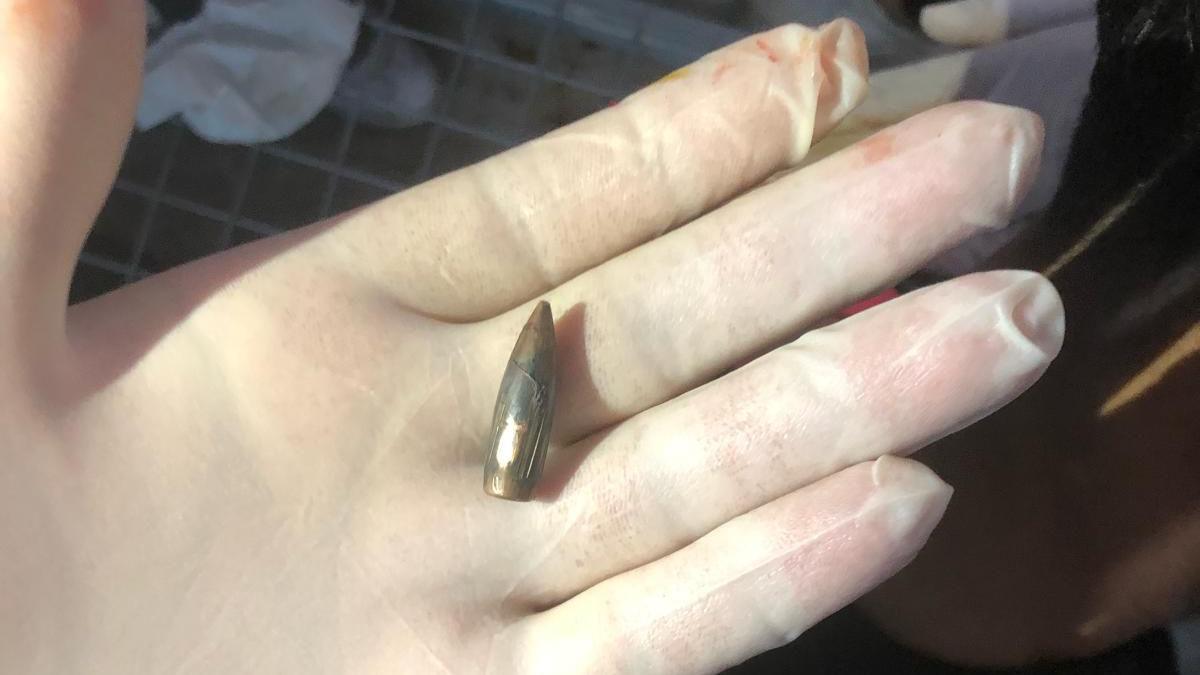
Dr Sultan said he saw hundreds of patients with bullet wounds, burns and other injuries
He described harrowing scenes of people who have lost limbs, headless bodies and seeing patients with "maggots in their wounds and flesh-eating bacteria".
Among the traumatic cases that horrified Dr Sultan was that of a 12-year-old boy, who arrived with severe injuries alongside the dead body of his mother.
"He was in absolute agony and was crying. The paramedics had no painkillers to give to keep him comfortable and he didn't realise that both of his legs were completely destroyed and mangled," he said.
"To tell him 'your mother has passed away and you're going to need the amputation of both legs and possibly one hand as well' was absolutely devastating."
Dr Sultan said the child's distressing response when he told him he was the only survivor left in his family "will always live with me".
"He said to me, 'I wish you would have killed me. Why did you save me?'
"It was very painful and I hugged him, and I sat with him for more than an hour, chatting with him.
"But inside myself I felt very broken, and I didn't know what more I could do to help this poor child."
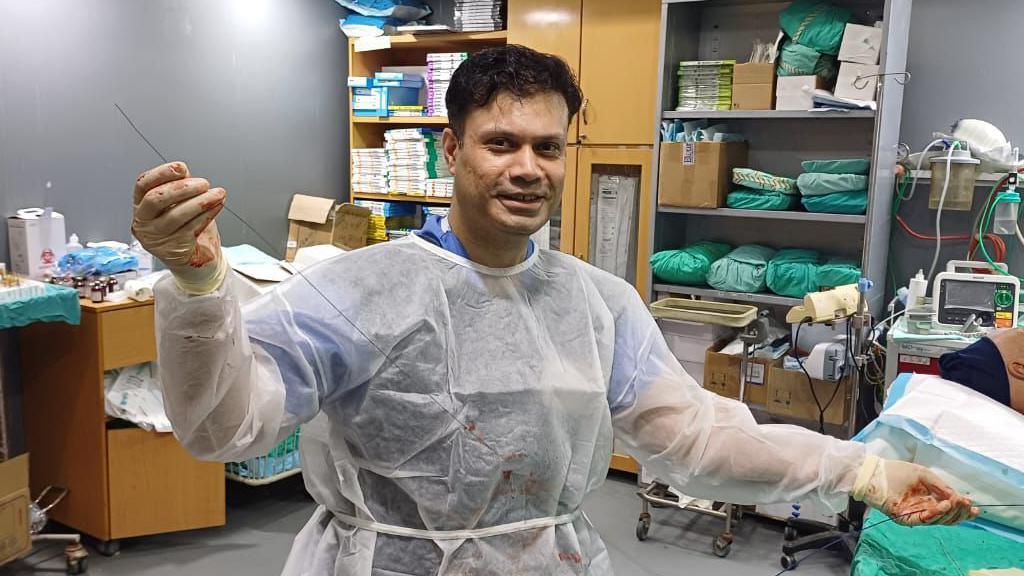
Dr Sultan was treating about 50 patients daily at the hospital's A&E unit
The 44-year-old said he treated about 50 injured civilians each day who were "all pretty much life or limb threatened" while working in the hospital's A&E unit.
"It was an absolute surprise when I entered the hospital," he said.
"The hospital was completely changed into a refugee camp, essentially. There were about 30,000 refugees because all their houses had been destroyed.
"There were tents in the hospital corridor on both sides, which was having a huge impact on the hospital protocol, causing a lot of obstruction in providing the clinical services and then on the cleanliness."
He said the European Hospital was one of the last remaining full hospitals with working facilities, including a dedicated paediatric intensive care unit.
However, there was a severe shortage of medical supplies, made worse by the large number of patients being treated. Up to 3,000 people were using the hospital each day, exceeding the original 250-bed capacity.
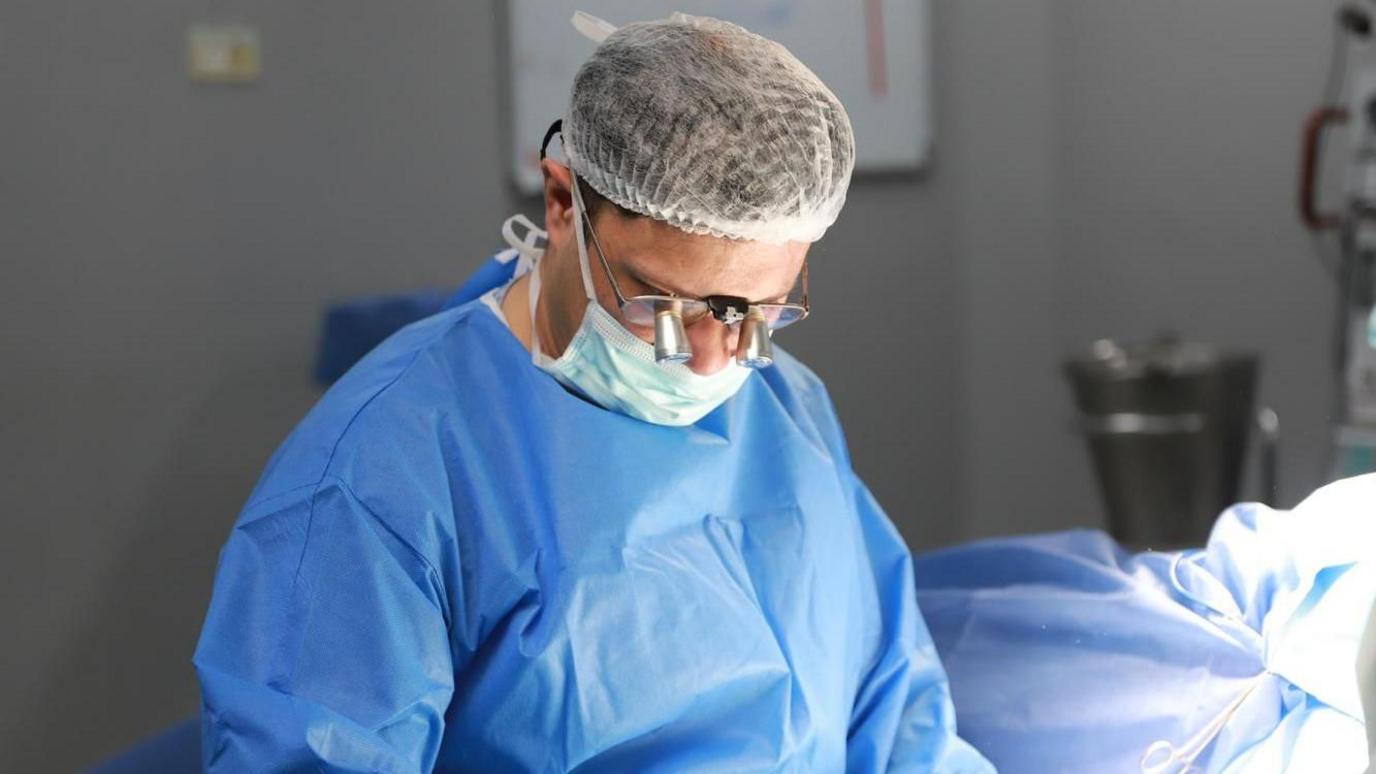
Dr Sultan worked for European Hospital, one of the few hospitals remaining in Gaza
More than 500 healthcare workers had been killed in the past nine months, claimed Dr Sultan.
He said local medics were constantly fatigued, working "24/7 in a voluntary capacity", and many living with no clean water and basic sanitation.
"Patients are emaciated. The doctors have been reduced to bones," he said.
"There are so many sewage leaks, and the sanitation system has completely been destroyed. That creates so many insects and attracts all the kind of diseases around that as well.
"It's so bad on so many different levels and unimaginable. How you can live as a human being like that?"
Dr Sultan said there was an urgent need for new hospitals to be built and access to medical supplies, food and clean water, and he wanted to raise awareness of "the ground facts" in Gaza.
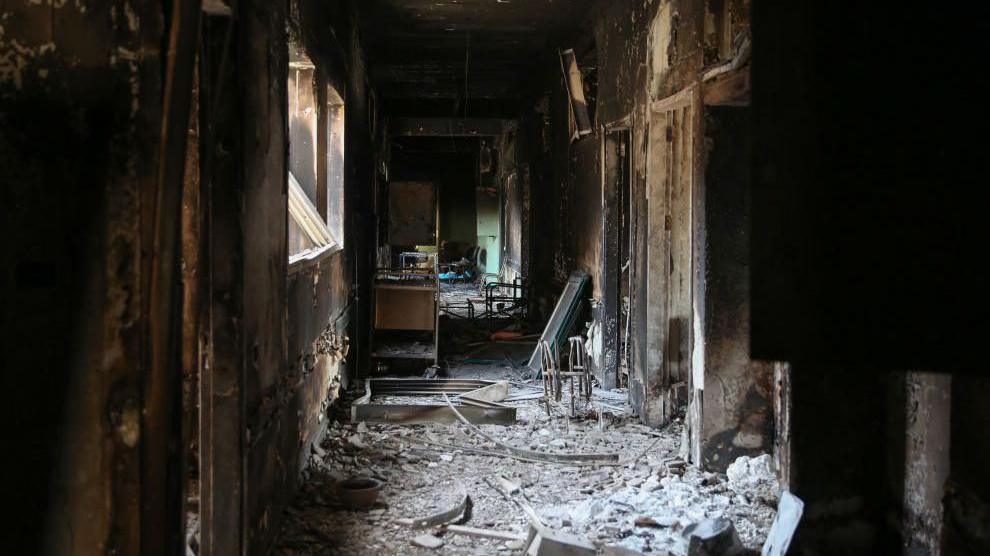
A number of hospitals have been destroyed in Gaza
While the psychological effects of his experience will be lasting, he said his time in Gaza had been "life-changing" and had made him "grateful of everything you have in life".
"There are things which I've seen, and I don't think I will ever be able to unsee them - the bodies of the children which I was carrying every day.
"But in the next few months I will go again and try to help the local community."
Follow BBC East Yorkshire on Facebook, external, X (formerly Twitter), external and Instagram, external. Send your story ideas to eastyorkslincs.news@bbc.co.uk, external
Related topics
- Published6 April 2024
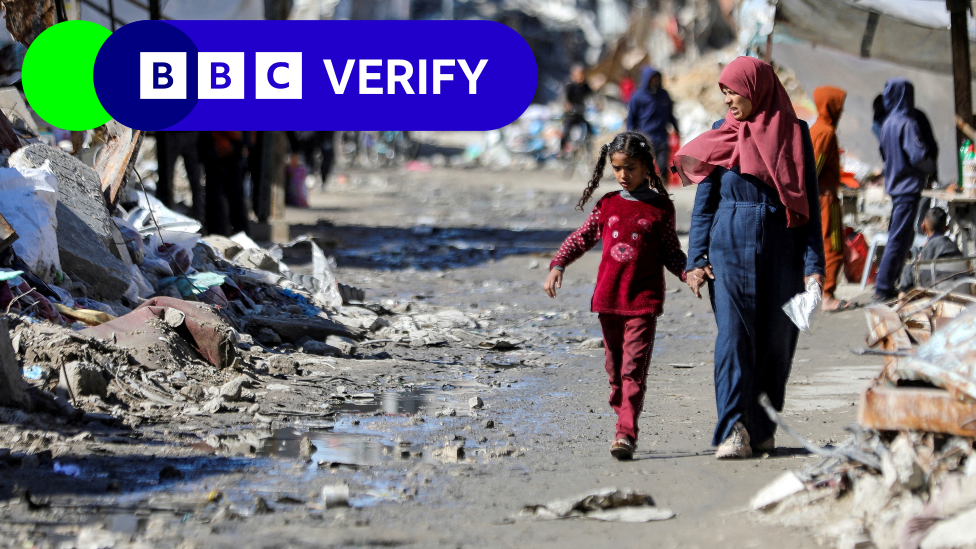
- Published22 June 2024
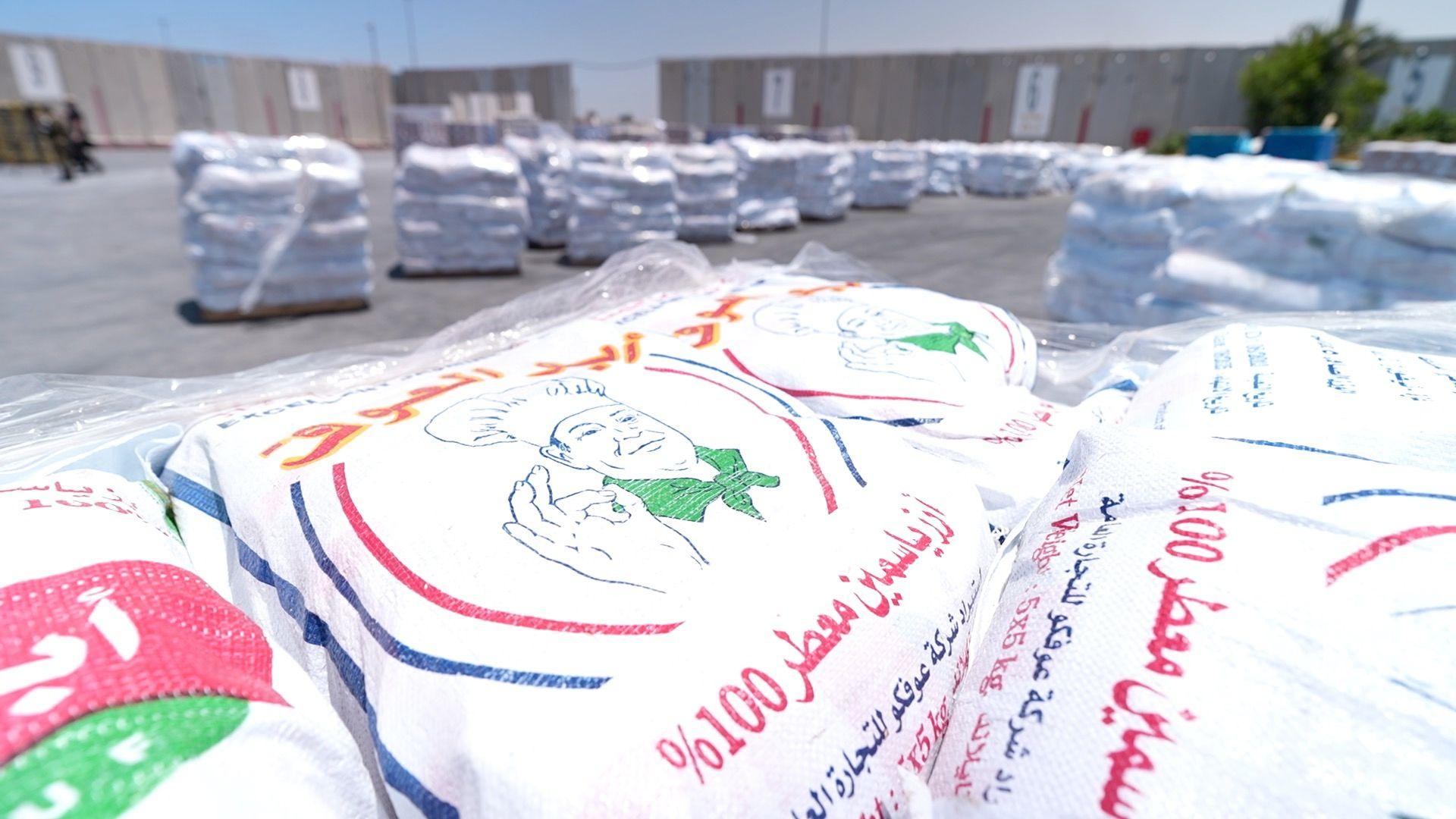
- Published19 June 2024
